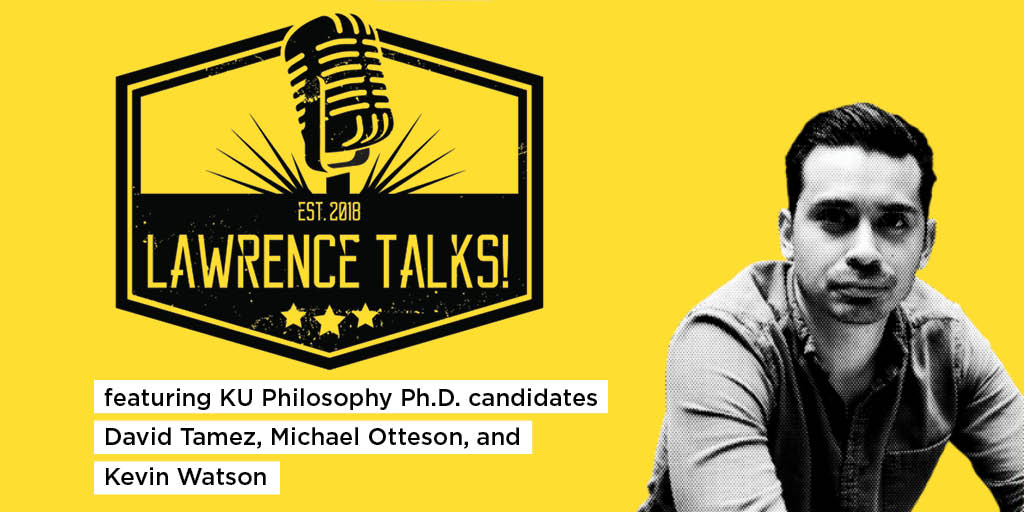
In an era where opinion is often mistaken for fact, a group of KU doctoral students turned podcast producers are on a quest to sort reality from fiction and uncover what is true, good, and beautiful in the world — one episode at a time.
With their interdisciplinary project Lawrence Talks!, David Tamez, Michael Otteson, Kevin Watson, and contributors hope to build bridges between KU academics and the wider community in Lawrence, Kansas. And using philosophy as a lens through which to debate and rigorously examine big issues, the team is tackling many of modern society’s most pressing and polarizing questions: Should free speech be restricted? Is artificial intelligence ethical? Why stay home during the pandemic?
See what David, Michael, and Kevin had to say about the initiative’s origins in the turbulent 2016 election, advice for students wanting to launch their own projects, and how they hope to inspire community conversation.
Where did the idea for Lawrence Talks come from, and what do you hope to achieve through the project?
Tamez: As cliché or as controversial as it might be, the idea came from two sources. The first, unfortunately, came from the 2016 Presidential election. Not just for the results, as concerning as these were, but for how the issues of the day were treated. Second, opinions, much of the time, were treated as fact and were not well explored or analyzed. One would have to turn to new sources for more long-form in-depth discussions of the issues. But, most people are exposed to discussions that fail to provide thoughtful and level headed commentary.
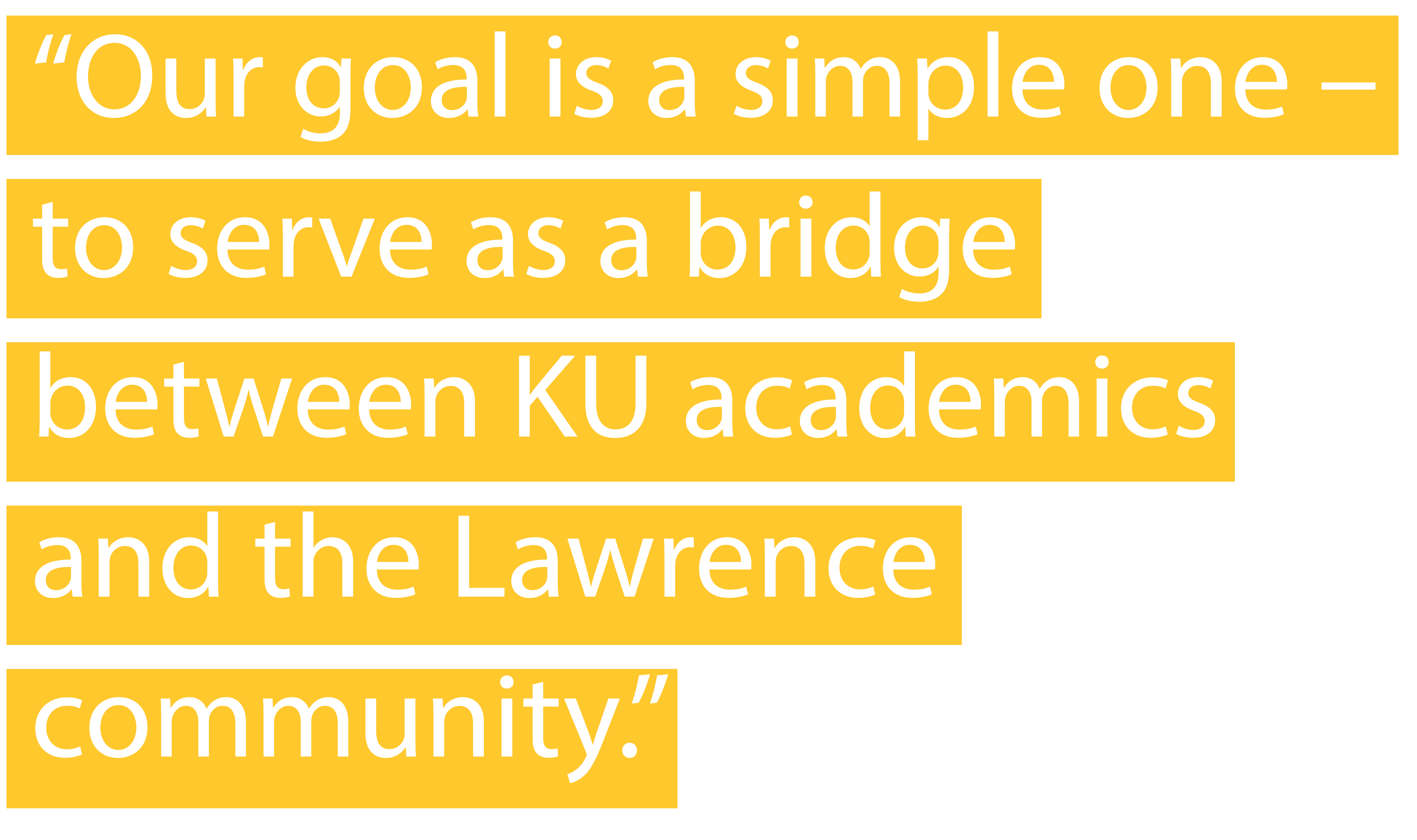
Our goal is a simple one – to serve as a bridge between KU academics and the Lawrence community. From my experience, there is a real desire on the community’s part to hear about the research being done on campus. Second, we just want to serve an important role in generating conversations that bring people from various viewpoints and backgrounds together.
At some point, I hope that Lawrence Talks can develop into a resource that can assist local community members and local government in their decision-making, especially in matter of ethics and justice. The idea is for it be something not just of KU but more so of the community. We want knowledge to be truly democratized and shared with the public.
What is one thing you hope listeners will take away from the podcast?
Tamez: Primarily, we would like listeners at recognize there are often more than two ways to look at an issue. Second, I hope people recognize that when discussing a topic or when introducing a topic, that we are not interested in discussing the weakest versions of a point of view. We do our best to employ the principle of charity. If our approach and motivation could be boiled down to a single principle, it would be this one. To always base our analysis on the best version of a given idea, argument, or way of thinking. Another view we would say we challenge is that the sort of ideas we hold are insignificant in our decision-making. Unexamined beliefs can prove deleterious to a well-functioning society.
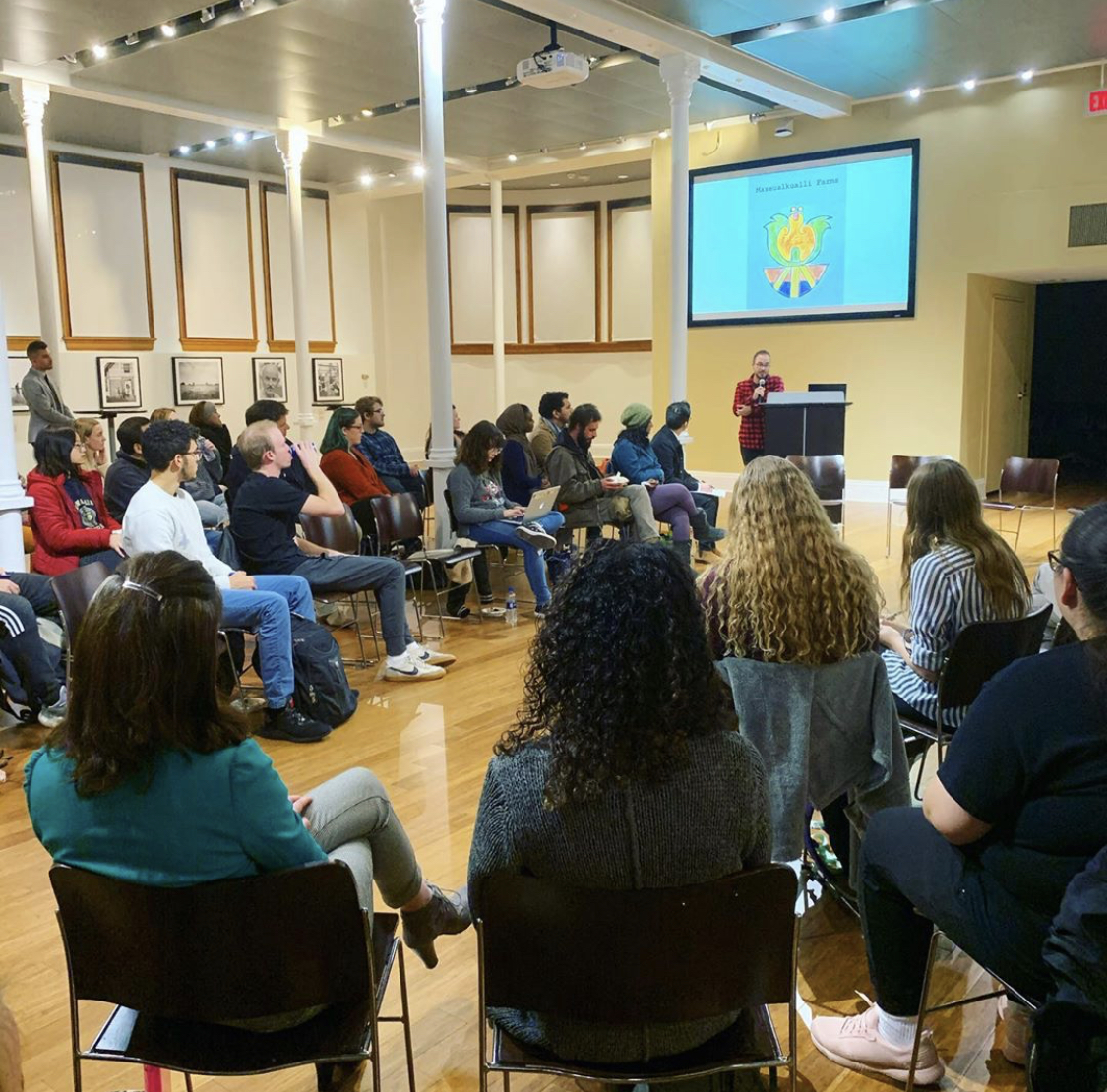
Otteson: I hope listeners can listen to our podcast and think about issues in our local community and the world more generally in way that they had not before. Even if it doesn’t change your mind on any given subject, perhaps it can help deepen or enrich what you already believe. We talk about a variety of topics, so there is a lot of different vectors for people to learn or take something away from the podcast. I know that I have learned a great deal myself from some of our incredible guests and contributors. Overall, hopefully this podcast can serve as reminder that there is a great that we don’t know. Individuals can only learn so much, and this project has certainly reminded me of this personally.
Watson: I just hope listeners keep an open mind while thinking critically about what’s being discussed.
How do you apply lessons or skills you’ve gained through your research and experiences at KU to your podcast work?
Tamez: One thing that philosophers are known for, and something we like to think we are good at, is cutting through the issues by asking the right questions. We try doing this by organizing a problem into a few essential parts and then questioning those elements. All of this starts and ends with asking the right questions. And philosophy can be applied anywhere and by anyone.
Otteson: Academic philosophy, like many other academic disciplines, requires a familiarity with what professionals and scholars have said before you came into the proverbial conversation. One of the key foundations of discourse is listening and understanding to what other people have to say, and this is something that motivated me to start Lawrence Talks with David. If we want to answer important questions about politics, morality, or just about anything else, we need to have some conception of what came before us. It takes too long to reinvent the wheel every time a new generation or individual looks at these problems with fresh eyes. None of us are smart enough to figure everything out on our own, so we must rely on the wisdom of what others.
Do you have any advice for others about getting involved in podcasting or other interdisciplinary projects?
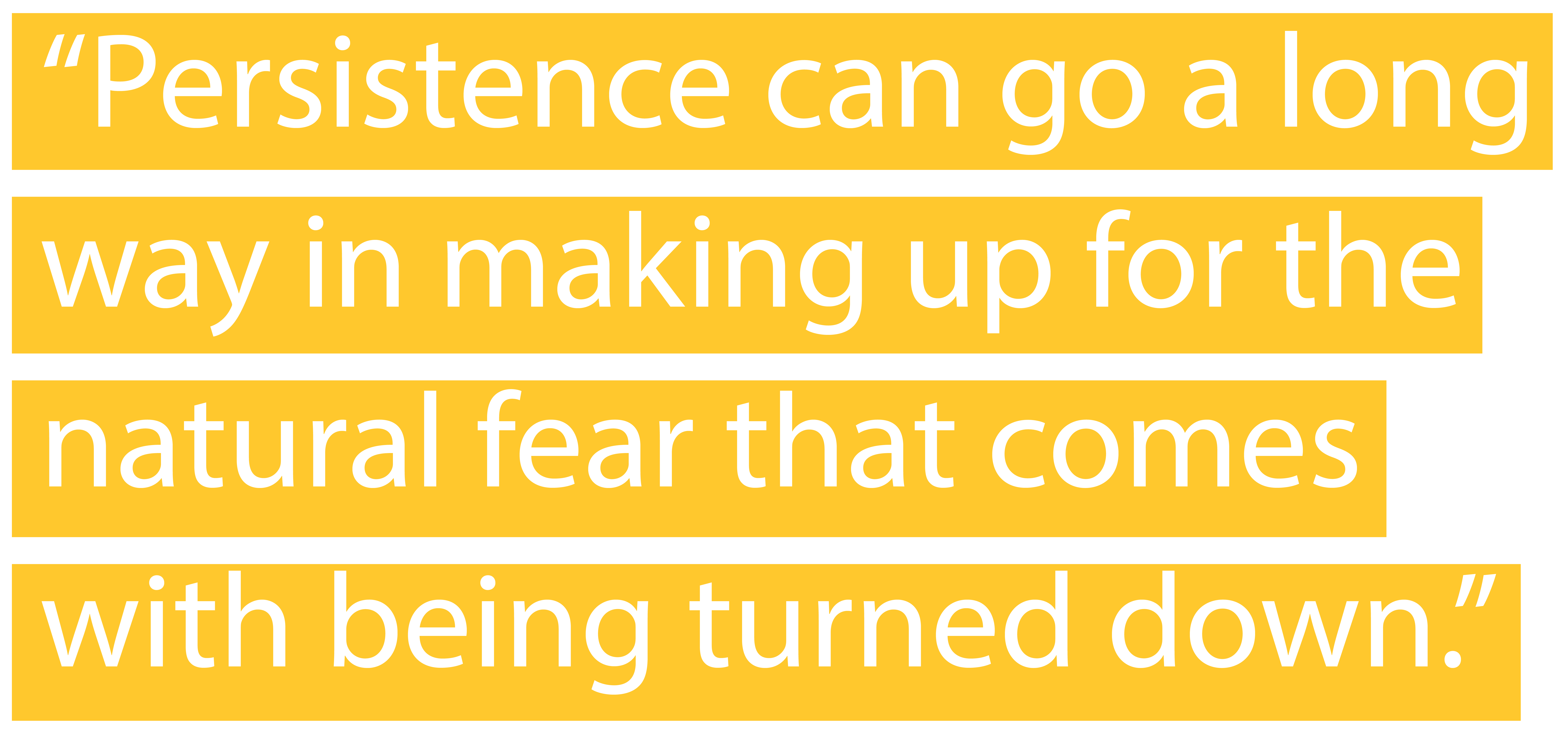
Tamez: One piece of advice, at least for people who might be a little reluctant to put themselves out there (as I was) – be audaciously persistent. Persistence can go a long way in making up for the natural fear that comes with being turned down. One should not be afraid of being turned down or turned away when seeking help or people to collaborate with on a project. Rather, expect to be turned down and prepare yourself for it by coming up with back up plans. On the mental side of it, prepare yourself for the feeling that comes with being told “no.” But, honestly, and this is my experience, we have been told yes more times than we have been told no. Researchers want to make their work available to the public, to speak to general audiences about how their work is relevant to community issues, and general audiences want to know what people are up to on the hill.
However, I will say, what may be more motivating or effective than persistence – is working on something you love and find meaningful. If it’s not something you enjoy talking about and enjoy speaking to others about, then you won’t be as successful or at least as persistent. I think the three of us, and others involved in our project enjoy the most is talking about ideas. And, further than that, it’s watching and listening to others talk about their ideas. Its inspiring and there is a great deal of energy in listening to others talk and discuss their work passions.
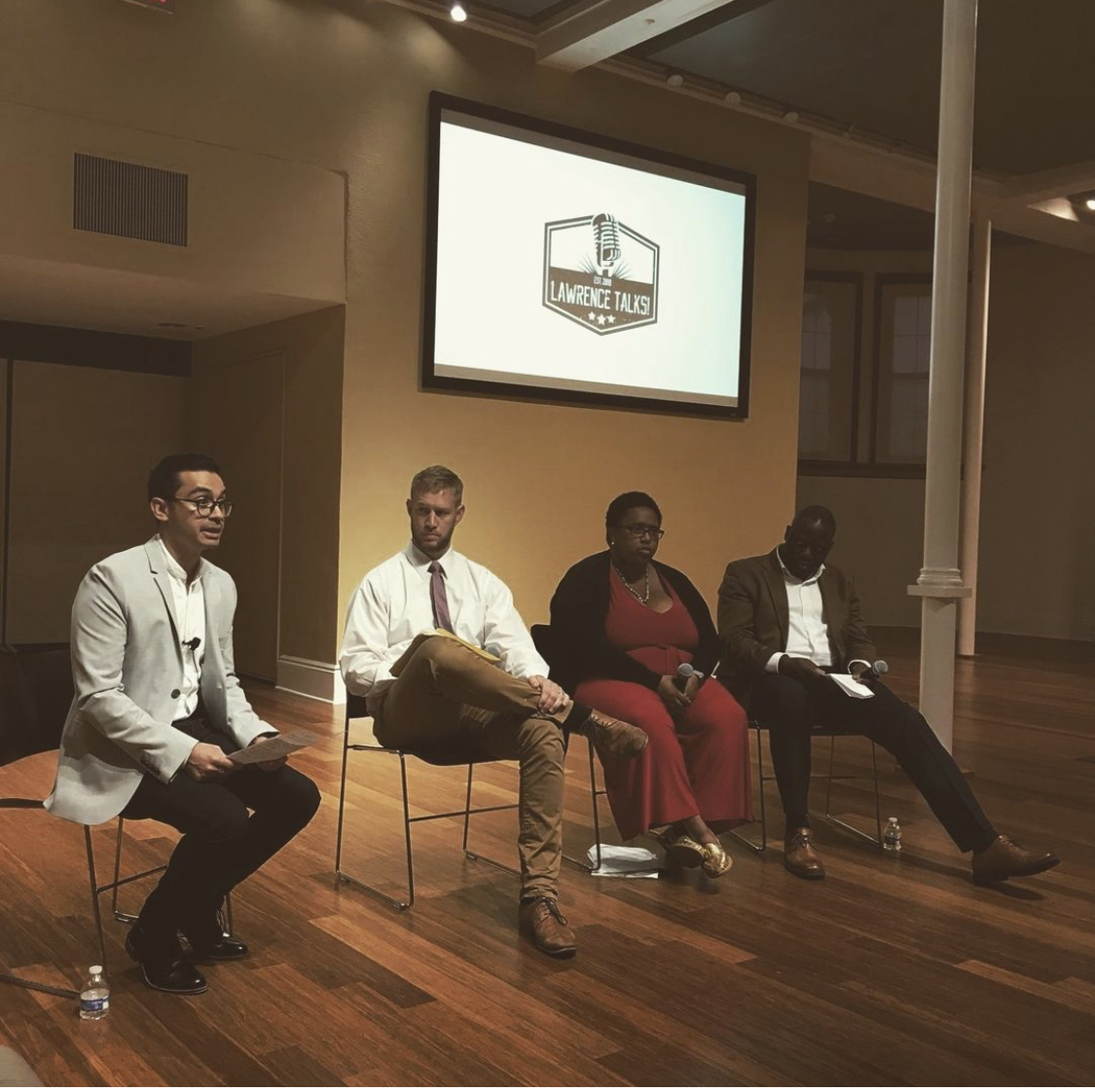
Otteson: While we are still relatively new to this, I think one of the key elements of what helps us embark on this project is drinking deeply from literature and writing from outside of our discipline. I personally spend a lot of time talking with people who help me think through some of the questions and topics I am interested in. Many of these individuals are quite different in disposition, background, and outlook than myself. In person conversation is a great way of thinking through topics of morality and politics. Most people don’t change their minds about substantial topics quickly. It takes a great deal of thought to make new beliefs fit in with the rest of our experiences and perspective, especially if the new beliefs radically alter what we believed before. The best way to do this is by talking to people who have a different worldview than we do repeatedly. It’s harder to ignore difficulties or pitfalls in our belief systems if other people cause us to face them regularly.
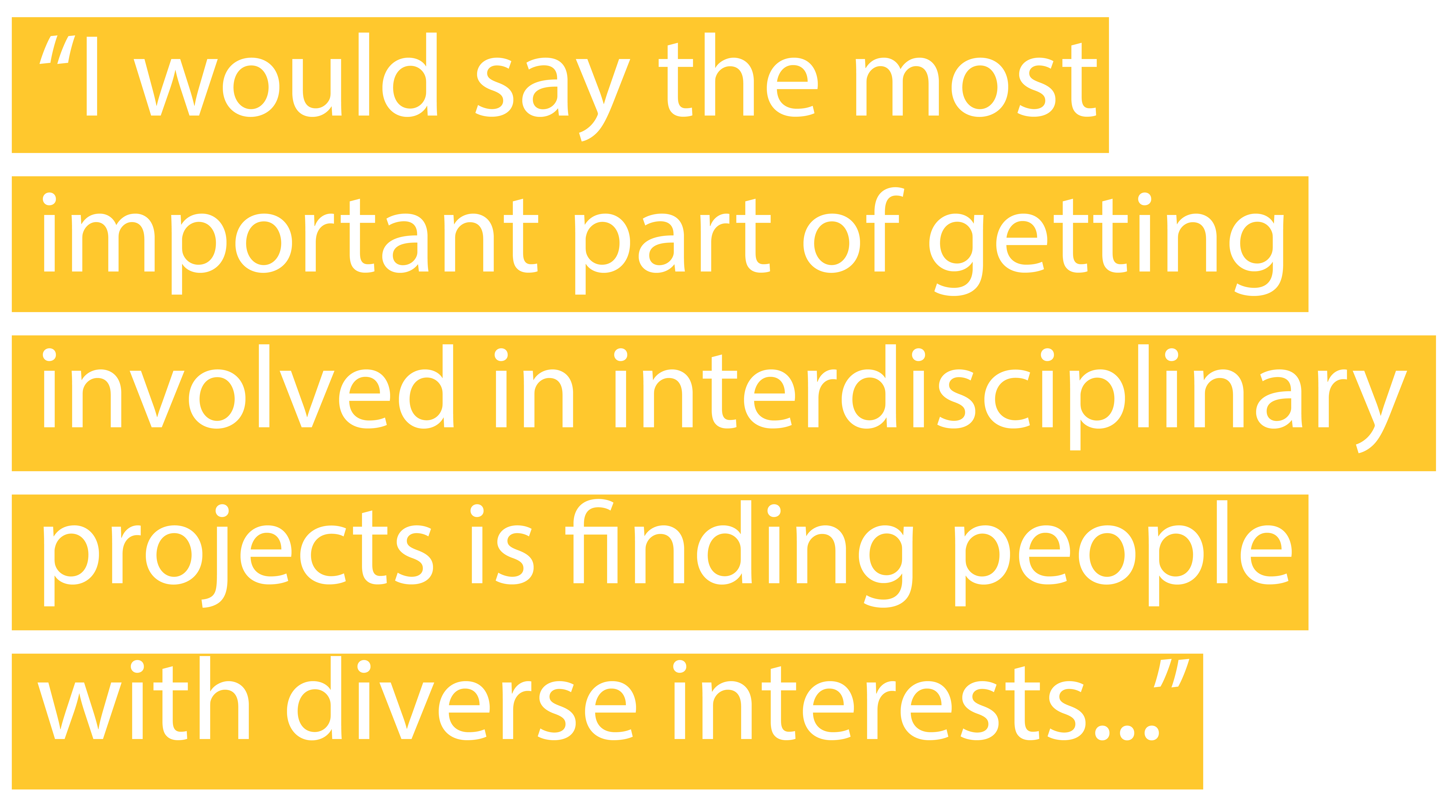
Watson: I would say the most important part of getting involved in interdisciplinary projects is finding people with diverse interests who enjoy thinking and talking about a diverse set of topics.
Give a shout-out to a professor, mentor, advisor, or someone at KU or in the Lawrence community who has helped you.
Tamez: Sarah Bishop and Brian Rosenblum, Emily Ryan, KU Commons, Aron Muci and his team at KU Center for Latin and Caribbean Studies, Dr. Luke Murry of the St. Lawrence Catholic Center, Dr. Sarah Robins, Dr. John Symons and Dr. Brad Cokelet of the Philosophy Department, and there are so many others. We are also currently working with the Lawrence Public Library and United Way Douglas Co. on current and future projects.
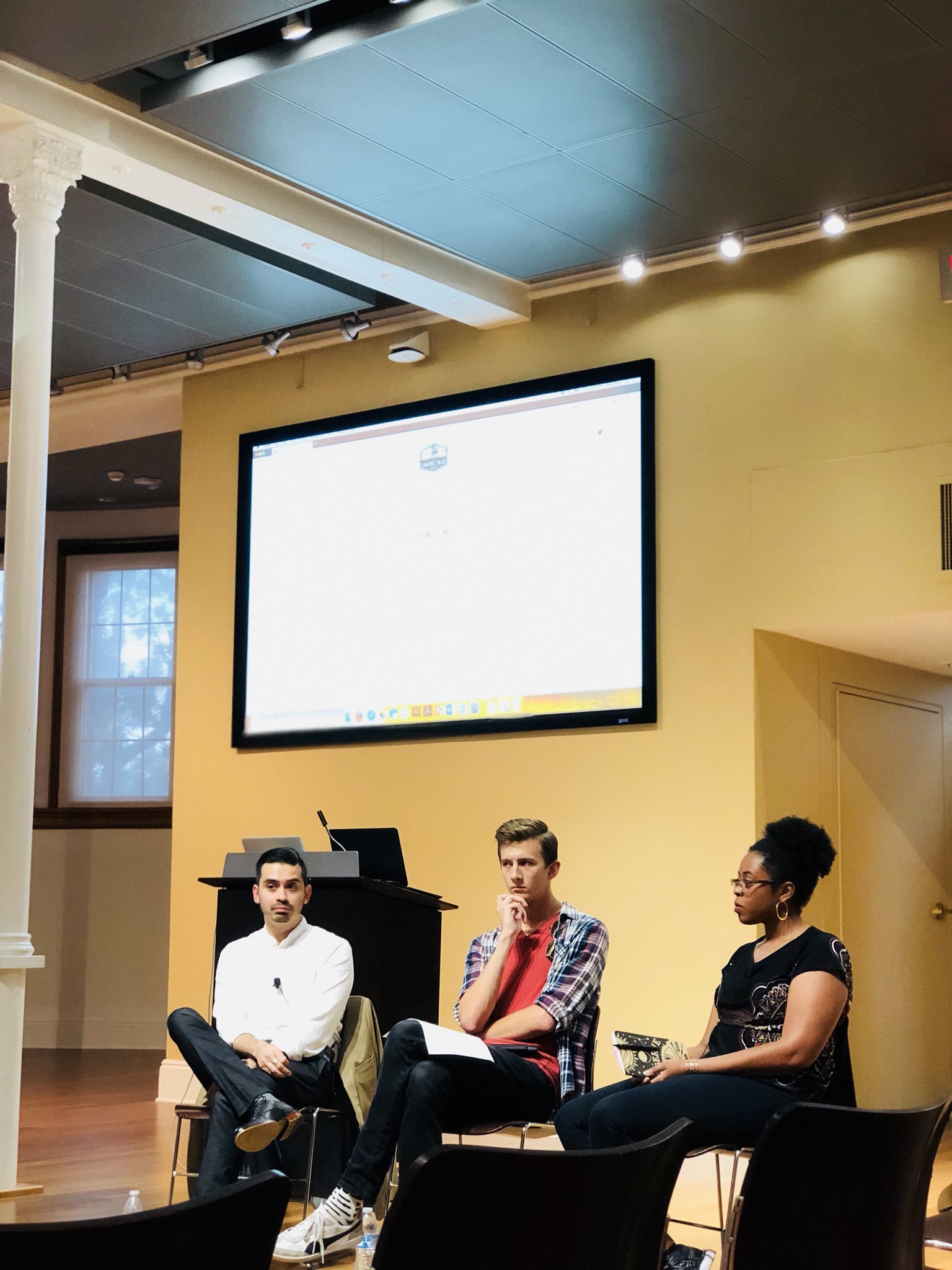
This project would not be as successful without the advice, feedback, and contributions all of these individuals have made to Lawrence Talks. There is such a great air of collaborative spirit here at KU, and it’s really easy if you simply ask (and of course have a full-fledged idea). People will see your passion and will want to be a part of it.
What motivates you?
Tamez: So much motivates me about this project. The ideas, the people, and the stories we come by. Right now, we are working with local Lawrence groups like the Douglas chapter of United Way and LATTE on podcast episodes and discussions of topics like digital selves, respecting autonomy, and criminalizing the poor. The purpose, to be clear, is not to discuss ideas for mere intellectual delight, although this is fine too. That’s what I hope is made clear by our work, is that yes, it’s a philosophy podcast, but it’s not just about the ideas. It’s about the impact or influence ideas can have in thinking about what we ought to do given the circumstances. What does x imply about the community’s value of human life? What sort of principles are apparent in our city’s decision to enact a certain policy? What prevents us from helping the poor, or recognizing that they are deserving of our assistance?
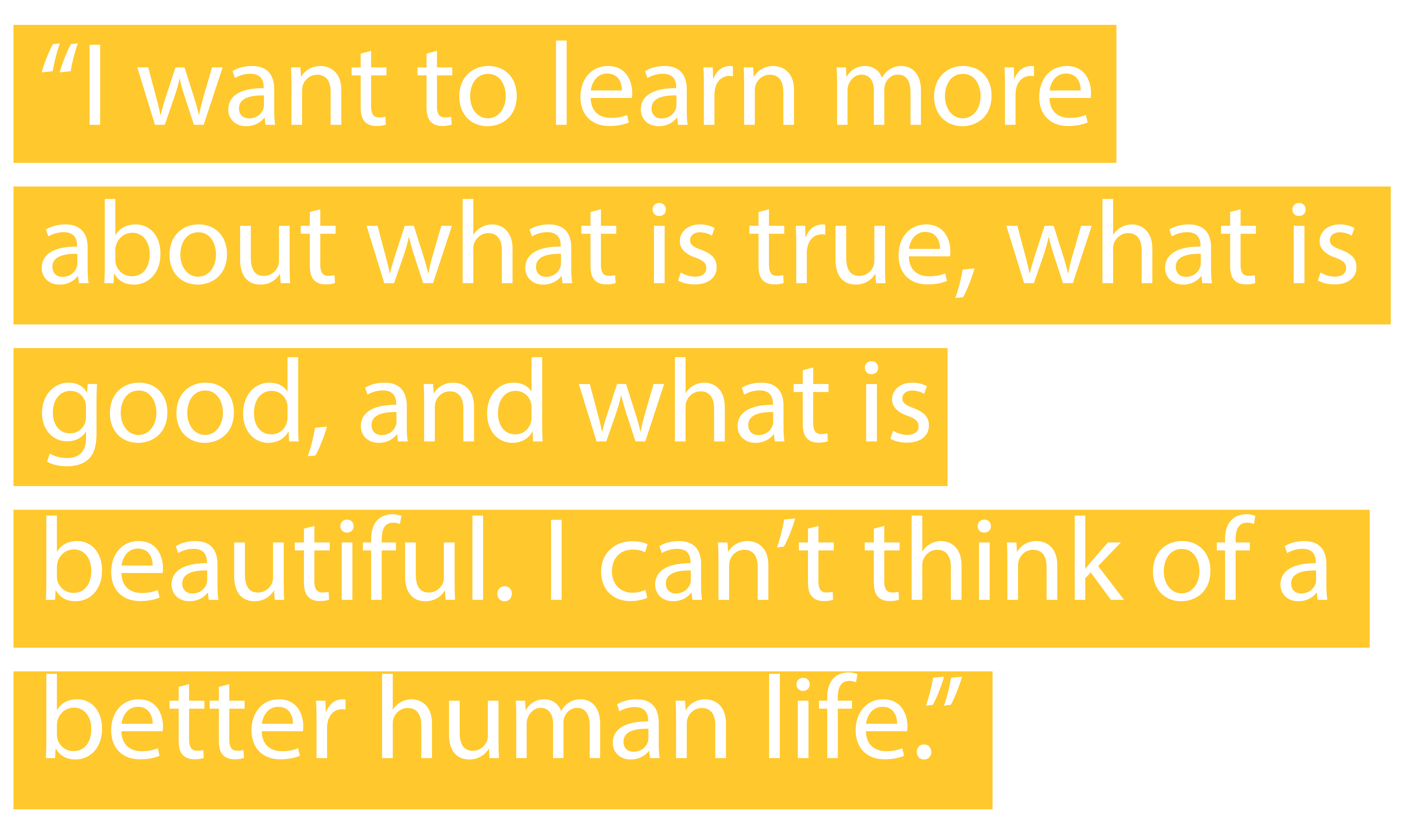
Otteson: I want to learn more about what is true, what is good, and what is beautiful. I can’t think of a better human life. Lawrence Talks is one small part of that. It is my job as a philosopher to pursue wisdom, and the people I’ve had a chance to talk to have helped me find a little bit more of it.
Watson: I am a first-generation student from a working-class family who has done their best to support me throughout my academic career; I just want to make my family proud and ensure the sacrifices they have made for me were worth it. My mother has struggled to keep a roof over our heads for the majority of my life, relying on our immediate family to have a place to live. For people in a position like my own, an academic career seemed unattainable—but here I am.


Meet more of our students. For more information, explore the Department of Philosophy at the University of Kansas.